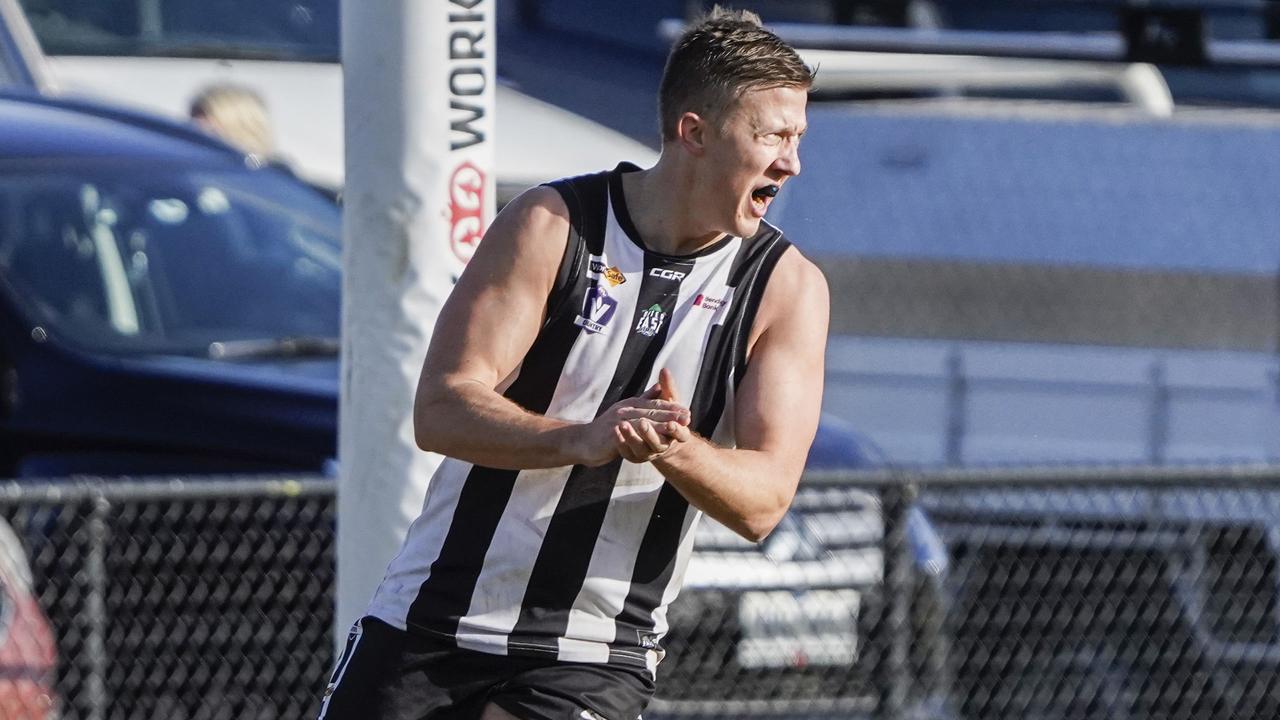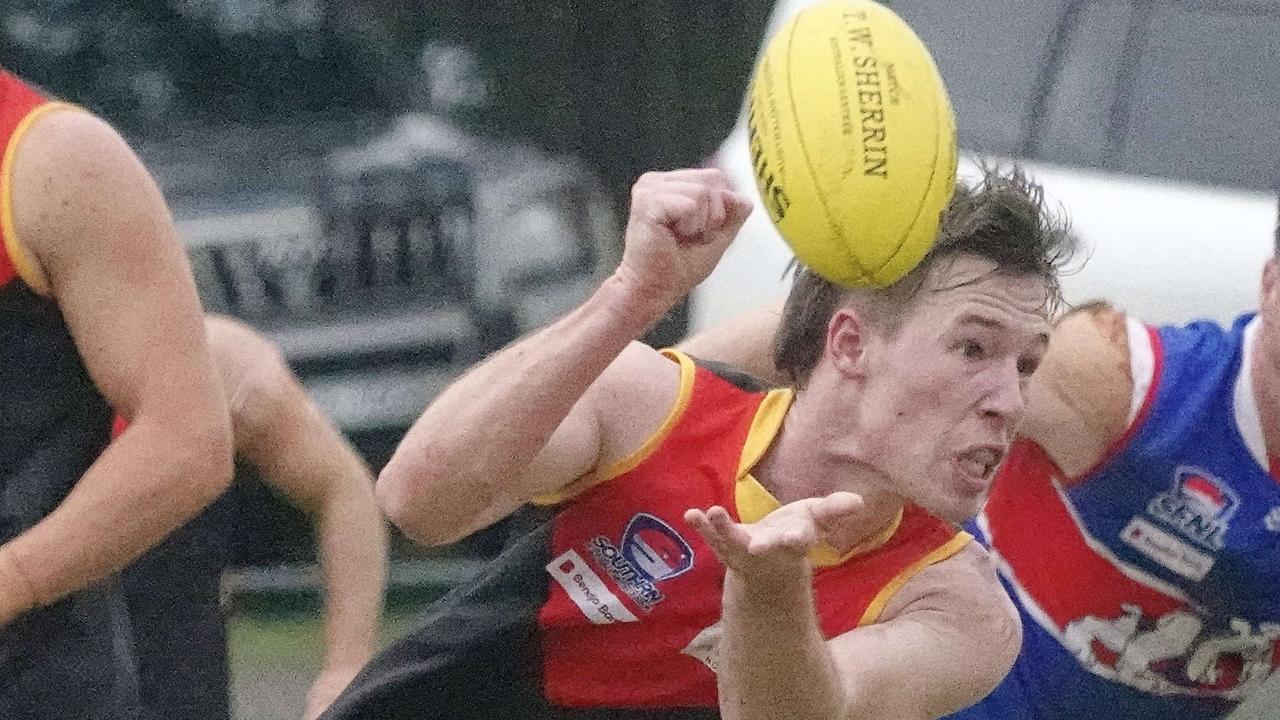Local footballer Rory Goldsmith on the road back from a harrowing concussion
Rory Goldsmith’s premiership celebrations took a twist in September after a serious concussion led him down a confronting and ultimately life-changing path. He shares his story with TYLER LEWIS.
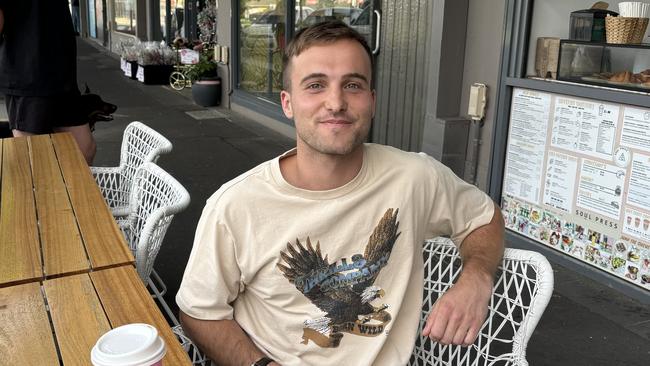
Southern
Don't miss out on the headlines from Southern. Followed categories will be added to My News.
Rory Goldsmith can’t drive for three months, will have headaches for six and won’t play footy for 12.
But it’s a much better alternative to the life he narrowly avoided after a serious concussion in September.
Goldsmith sustained an accumulation of head knocks during Dingley’s Southern league reserves premiership.
“Dazed, dizzy and seeing dots”, he sat the final minutes of the game on the bench and felt improvement before the post-match elation became too much.
The noise, the light and the offer of a victory beer made him feel sick.
Goldsmith took some time to himself amid celebrations but was soon taken to Sandringham Hospital where his condition worsened.
“I remember sitting there waiting with mum, dad and my girlfriend and anytime they got a notification or spoke I was getting so angry, the noise was too much,” Goldsmith said.
“I got a CT scan and they said I had two bleeds on the left side of my brain and I needed to be rushed to the Alfred.
“For almost a day I was fine, the lights were fine, I had an appetite but it then got to Monday and I kept vomiting non-stop.
“I remember there was a TV above me (in the hospital) and I couldn’t even look at the little red dot, everything was just going a bit nuts.
“I would muster enough energy in a day to go to the toilet on Monday, Tuesday, Wednesday.
“Any visitors I had I couldn’t give them anything, it was just what the bleed did to me.”
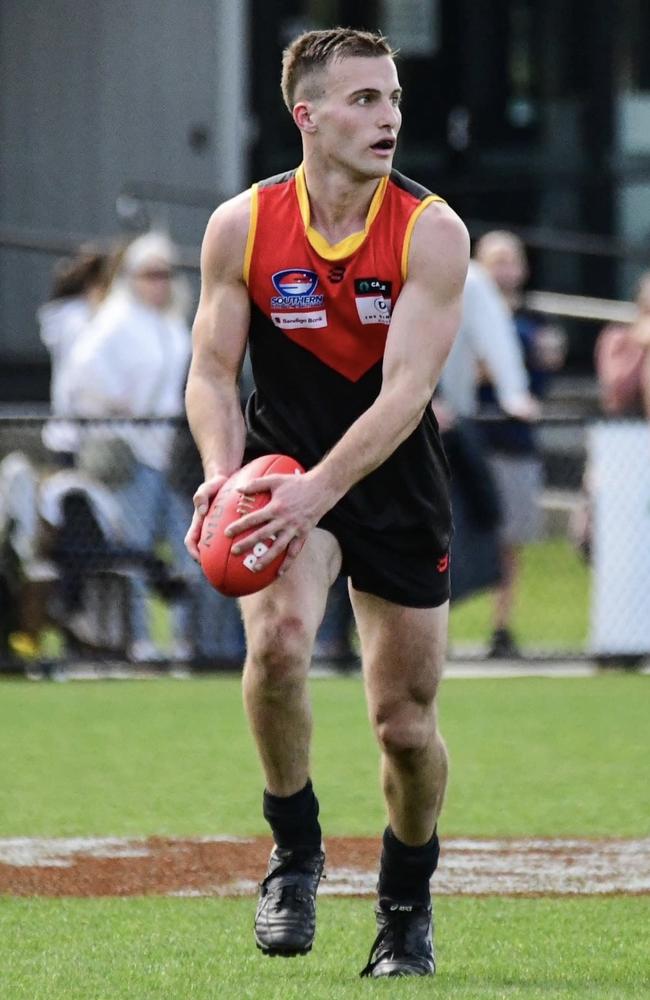
Goldsmith was discharged on Saturday – a short six days from his initial admission.
Rather than being moved to the rehabilitation clinic at the Epworth Hospital, he was sent home.
It took just two days for his symptoms to return.
Goldsmith checked himself into the Epworth where he was treated alongside patients recovering from serious car accidents.
“When I was doing gym for 30 minutes a day, the people you’re with, they’re trying to learn how to walk again,” he said.
“You feel pretty grateful to be able to do those things when you see people with bandages over their head and limp arms; it’s a scary place I never want to be in again.
“I have never felt so low in my life, I have never been diagnosed with depression but if that’s what depression feels like then yeah that’s definitely how I felt.
“I went from driving to work, having a coffee in the morning, going to the gym, being productive to literally being confined to a hospital bed that wasn’t even long enough for me.”
Goldsmith was finally discharged and started adjusting to his new normal at home.
He returned to work as an electrician just over a week ago but, as a result of his injury, will be hitching a ride to and from site until Christmas.
The near miss to life with permanent repercussions has opened his eyes to the importance of health over football.
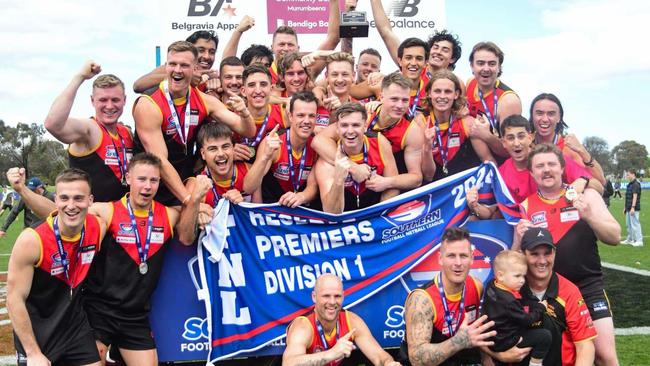
“The biggest lesson is that there’s more to life than footy,” he said.
“I didn’t need to stay on, I chose to, and in doing so I was one step off permanent brain damage.
“If I kept playing I could have had a serious brain injury, so I have sort of learned that there’s more to life than footy.
“If you get hurt, take yourself off, because there’s so much more to life, footy is just a small aspect of my life now.
“The fact I have to give it away for a year, it doesn’t really bother me because there’s so many other things I can appreciate and look forward to.”
Goldsmith’s brain bleed was due to the knocks he wore during the grand final but they weren’t the only recent hits to his head.
He thinks he was concussed during the senior qualifying final against St Paul’s McKinnon three weeks earlier.
Fearful of the 21-day protocol, Goldsmith “kept his mouth shut”.
He regrets that decision now but doesn’t think he is the only player to have disguised a head injury under the new ruling.
“I got concussed pretty badly but I didn’t say anything because I wanted to keep playing,” he said.
“I kept my mouth shut but I should’ve said something, I should have spoken up, I do think local footy needs to have a better rule around that.
“I don’t know exactly but if every player knows you’re going to be out for three weeks, a lot aren’t going to speak up.
“Perhaps if they introduce a test that allows players to play the following week if they recover or reduce the 21 days off.
“Although that would contradict the message I am trying to convey: players should look after their head because there’s more to life than footy.”
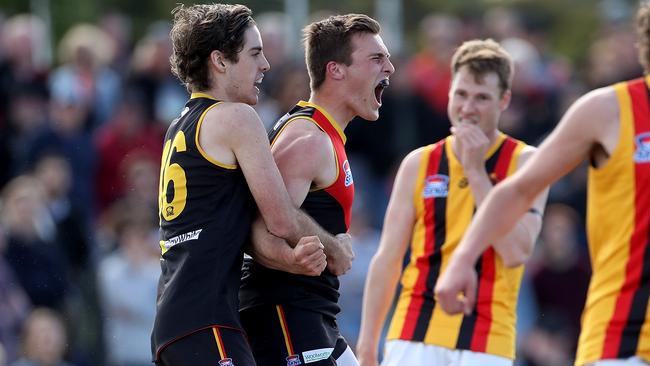
After not being able to work for a month, Goldsmith says the financial strain also plays a part in players masking symptoms.
“When I came out of the Alfred and had terrible symptoms, I was lucky to have private health insurance to be admitted into rehab at the Epworth,” he said.
“I feel like it can be very difficult for people to reach out for help if they don’t have private health as there’s a lack of support for people through public health services.
“Not working for a month hurts financially as well, so there should be insurance that helps cover those hospital expenses.”
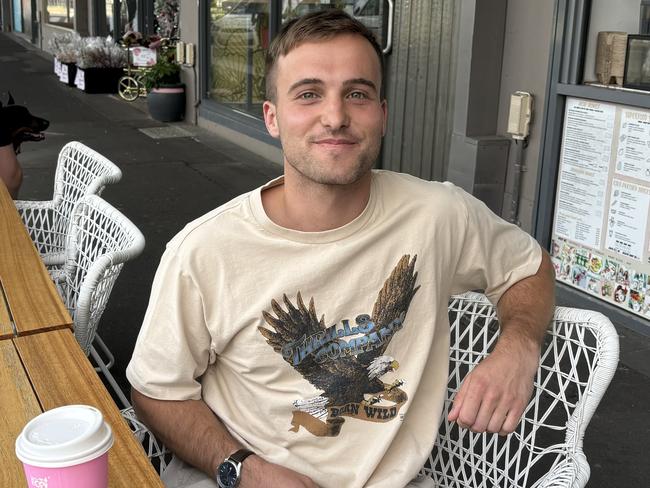
2025 will be the first season in Goldsmith’s life in which he won’t pull the Dingley jumper on for at least 10 games.
He was an important member of the Dingoes’ 2019 premiership and was unlucky to be dropped in the week of this year’s decider.
Goldsmith thinks the absence of footy will only leave a social hole and is excited to take on a new challenge next year.
“I am excited to see what I can achieve next year, I might do an Iron Man or something completely different,” he said.
“I was meant to do a half Iron Man this Sunday but the doctors rubbed me out for it.
“I was pretty disappointed by that, I might do that (next year), the full one is wishful thinking but because I won’t have footy I will have a bit more time.
“I will miss the social aspect of it but footy itself is not the biggest thing for me anymore.”


